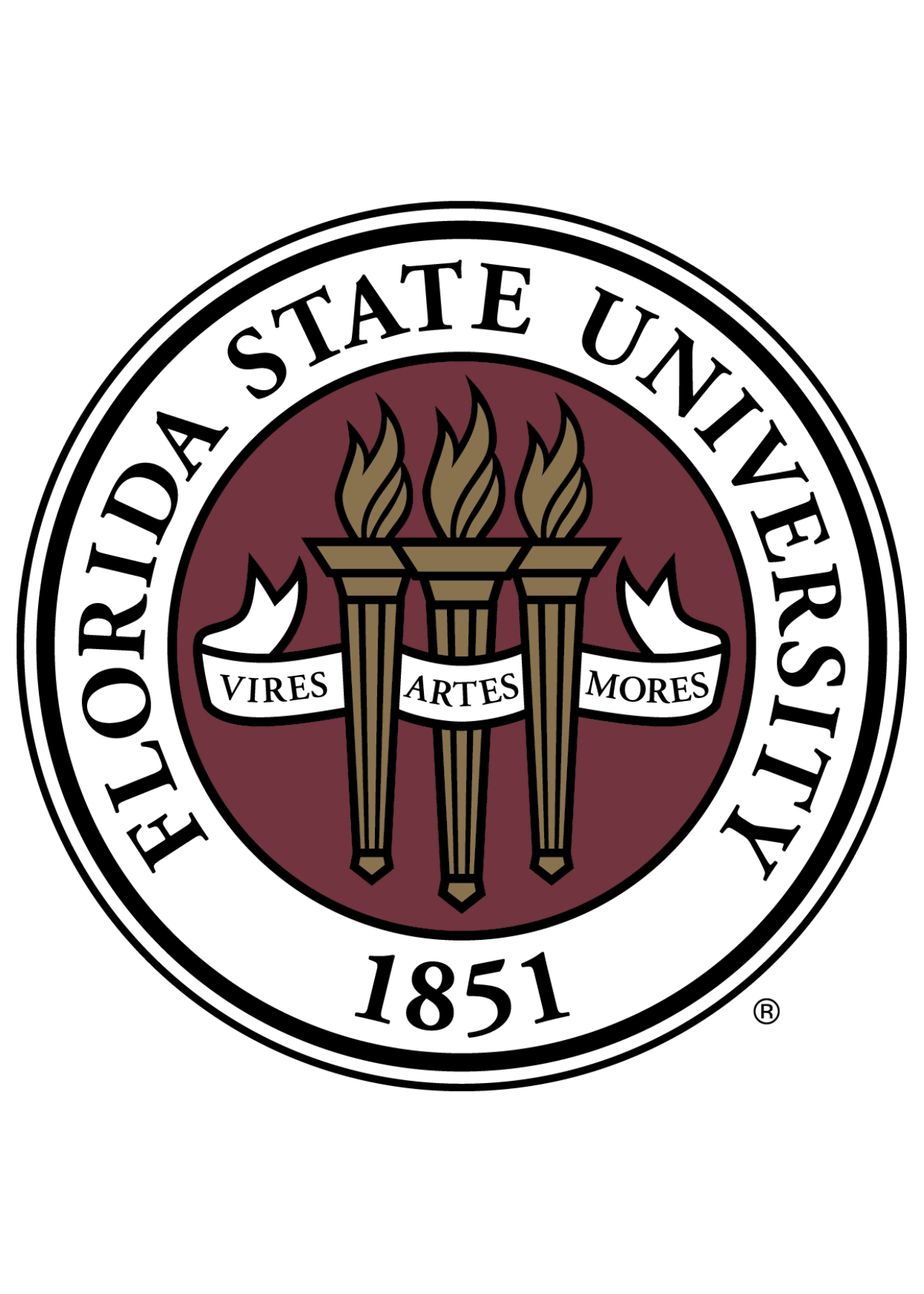An online master’s degree in criminology prepares students for various career paths involving the study of crime. Police and detectives earn an average annual salary of $69,160, while social workers make $55,350.
The average cost of graduate school tuition is $12,596 at public schools and $28,017 at private schools. Most online programs to earn a master’s in criminology require the completion of 30-36 credit hours, which can take full-time students 1-2 years to complete.
We asked Blanca Villagomez, a program counselor and coordinator at UC-Irvine, for guidance on choosing a program, preparing for the application process, and securing funding through scholarships, grants, and financial aid.
Why Trust Us
The Intelligent.com Higher Education Team is dedicated to providing students with independent, equitable school and program rankings and well-researched resources. Our expert-driven articles cover topics related to online colleges and programs, paying for school, and career outlooks. We use data from the U.S. Department of Education’s College Scorecard, the National Center for Education Statistics, and other reputable educational and professional organizations. Our academic advisory team reviews content and verifies accuracy throughout the year for the most current information. Partnerships do not influence rankings or editorial decisions.
- Analyzed over 2,000 national, accredited, and nonprofit colleges and universities
- 800+ rankings pages are reviewed and updated yearly
- Content is informed by reputable sources, surveys, and interviews with academic advisors and other experts
- Over 100 data points are reviewed for accuracy and quality throughout the year, including sources
How we rank schools
Our list features the best online Master’s in Criminology degree programs at top colleges nationwide. Each school featured is a nonprofit, accredited institution — either public or private — with a high standard of academic quality for post-secondary institutions.
We evaluated each school’s program on tuition costs, admission, retention and graduation rates, faculty, reputation, and the student resources provided for online students. We collected data from trusted sources like the National Center for Education Statistics, individual school and program websites, school admissions counselors, and other data sources. Then, we calculated the Intelligent Score on a scale of 0 to 100 based on the following criterion:
Academic Quality:
- Admission rate versus enrollment rate
- Retention rate of students who return after year one
- Accreditation status (regional and programmatic)
- Nonprofit status, both private and public institutions
Graduation Rate
- Overall graduation rate
- Total number of currently enrolled students, including diversity metrics
- Student-to-faculty ratio
Cost and ROI
- In-state and out-of-state per-credit tuition rates and fees
- Required credits to graduate
- Earning potential after graduation
- Availability of federal student loans, scholarships, and other financial aid options
Student Resources
- Available student services for online-only and hybrid programs
- On-campus amenities like tutoring centers and the number of libraries
Read more about our ranking methodology.
Best 12 Accredited Online Master’s in Criminology Programs
FiltersInstitution Type
Status
- Intelligent Score
- Alphabetically By University Name
- Acceptance Rate
- Enrollment
- In-state Graduate Tuition
- Out-of-state Graduate Tuition
- In-state Undergraduate Tuition
- Out-of-state Undergraduate Tuition

University of California, Irvine
Intelligent Score: 98.98In-state: $11,442
Out-of-state: $41,196
In-state: $11,442
Out-of-state: $11,442
SAT: 1310-1530
ACT: 30-35
$340
Online
WASC Senior College and University Commission
35

Florida State University
Intelligent Score: 97.33In-state: $4,640
Out-of-state: $19,084
In-state: $9,684
Out-of-state: $9,684
SAT: 1220-1350
ACT: 27-31
Resident: $444
Non-Resident: $1,076
Online
Southern Association of Colleges and Schools Commission on Colleges
36

Regis University
Intelligent Score: 95.69In-state: $38,208
Out-of-state: $38,208
In-state: $14,322
Out-of-state: $14,322
SAT: 1000-1220
ACT: 21-28
$599
Online
Higher Learning Commission
36

Missouri State University
Intelligent Score: 95.68In-state: $6,840
Out-of-state: $15,510
In-state: $5,436
Out-of-state: $5,436
SAT: 1020-1220
ACT: 21-27
$379
Online
Higher Learning Commission
30-36

Saint Louis University
Intelligent Score: 95.42In-state: $46,400
Out-of-state: $46,400
In-state: $21,420
Out-of-state: $21,420
SAT: 1160-1370
ACT: 25-31
$1,000
Online
Higher Learning Commission
33

Indiana State University
Intelligent Score: 93.52In-state: $9,186
Out-of-state: $20,290
In-state: $7,668
Out-of-state: $7,668
SAT: N/A
ACT: N/A
Resident: $462
Non-Resident: $601
Online
Higher Learning Commission
36

Texas A&M University - Commerce
Intelligent Score: 91.9In-state: $8,395
Out-of-state: $36,849
In-state: $6,775
Out-of-state: $6,775
SAT: 1160-1380
ACT: 26-32
Resident: $408
Non-Resident: $816
Online
Southern Association of Colleges and Schools Commission on Colleges
36

Indiana University of Pennsylvania
Intelligent Score: 91.65In-state: $27,840
Out-of-state: $33,250
In-state: $29,168
Out-of-state: $29,168
SAT: NA
ACT: NA
Resident: $516
Non-Resident: $593
Online
Middle States Commission on Higher Education
30

The University of Texas at Dallas
Intelligent Score: 90.62In-state: $11,448
Out-of-state: $40,032
In-state: $12,028
Out-of-state: $12,028
SAT: 1210-1470
ACT: 26-33
Resident: $744
Non-Resident: $1,460
Online
Southern Association of Colleges and Schools Commission on Colleges
36

West Liberty University
Intelligent Score: 89.73In-state: $8,150
Out-of-state: $16,090
In-state: $6,780
Out-of-state: $6,780
SAT: 900-1120
ACT: 17-23
In-State: $495
Out-of-State: $625
Online
Higher Learning Commission
30

San Jose State University
Intelligent Score: 87.74In-state: $5,742
Out-of-state: $17,622
In-state: $7,176
Out-of-state: $7,176
SAT: 1010-1240
ACT: 19-26
$598
Online
WASC Senior College and University Commission
30

University of Nebraska Omaha
Intelligent Score: 87.23In-state: $7,770
Out-of-state: $24,900
In-state: $6,138
Out-of-state: $6,138
SAT: 1110-1320
ACT: 22-28
Resident: $388
Non-Resident: $820
Online
Higher Learning Commission
36
How to Choose an Online Master’s in Criminology Program
Choose your area of study
Master’s degrees in criminology come in many forms and offer a variety of choices. For example, all of the following degree programs fall under the criminology umbrella:
- Master of Arts in criminal justice
- Master of Science in crime analysis
- Master of Science in justice, law, and criminology
- Master of Science in forensic investigation
Also, many programs allow you to select a concentration and focus your studies on a particular niche in this field, such as cybercrime or global security. If you already know what you would like to do after you graduate, look for programs that closely match these career goals.
“A college education requires an investment of time, money, and energy, so it’s important for students to reflect on their motivations for pursuing a degree,” says Villagomez. “The framework I recommend to help students explore their options and choose the right degree program includes reflection, strategy, and research. I encourage students to reflect on their academic interests, career goals, and the types of learning environments they thrive in to identify the best programs for them.”
Research schools and programs
You should only apply to institutions that have been approved by a DOE-recognized regional accrediting organization, such as the New England Commission of Higher Education or Northwest Commission on Colleges and Universities. These organizations evaluate schools to ensure they provide students with a high-quality education. Those who attend a school that isn’t regionally accredited may be unable to access financial aid or transfer credits to another institution if needed.
Ideally, your master’s in criminology program will also be accredited by a respected industry group like the Academy of Criminal Justice Sciences (ACJS). This programmatic accrediting organization has particularly high standards for criminology education.
In addition, consider the availability of faculty to online students and how educational support is offered for those not physically on campus. Other questions to ask include:
- Are mentoring or tutoring services available to online students?
- Are there any student-faculty research opportunities for online students?
- Is there a career services office or support center available?
To learn more about any schools that you’re interested in, you can visit the school’s website, contact an admissions counselor, follow the school on social media, or attend an in-person or virtual open house.
Prepare for tests and applications
Application requirements vary by school and program. Most online programs for a master’s degree in criminology will require a bachelor’s degree in a related field and at least a 3.0 grade point average. You will likely be asked to submit undergraduate transcripts and Graduate Record Examination (GRE) scores.
Colleges often ask for letters of recommendation from professors who can speak to your scholarship. You may also be asked to write a personal statement about why you are an ideal student for the chosen college. In addition, a professional resume or curriculum vitae (CV) is always an important document to have prepared ahead of time.
Before submitting an application, always contact an admissions counselor to ensure you have the most accurate information regarding requirements and deadlines.
“With all these requirements, students need to stay organized with a comprehensive and detailed checklist to track their progress, submit all required materials, and meet deadlines,” adds Villagomez. “I encourage students to decide what systems help them organize the application requirements and track their progress for each school.”
Select your program
After you’ve weighed all the academic considerations, you should consider more personal ones, such as:
- Affordability
- Friendliness of staff and students
- Sense of community
- Opportunities for scholarships
- Faculty-to-student ratio
Aligning your personal and academic preferences will help you select a program that best fits you.
Before making your final decision, review your needs and goals again. Do you plan to attend school full-time or part-time? Are you only interested in 100% online programs, or are you fine with a hybrid program that has a few in-person requirements? Some programs offer asynchronous courses, which can be completed at your own pace, while others only offer synchronous courses, which involve remotely attending lectures and completing assignments at the same time as other students — which of these two online learning formats do you prefer? Your school should accommodate your scheduling needs and learning preferences.
Determine how you’ll pay for your degree
The best place to start is with your school’s financial aid department. Advisors can share information about potential grants, scholarships, and payment plans. If you are financing your education, you should begin with the Free Application for Federal Student Aid (FAFSA). Those who already work in the field should see if their employer offers tuition assistance benefits as well.
“Scholarships are free money, and hundreds of options are available outside of the schools you’re applying to,” Vilagomez says. “Consider using trusted scholarship websites like Scholarships.com, Fastweb, Going Merry, and ScholarshipOwl.”
Also, consider any indirect costs that aren’t necessarily academic, such as childcare, technology upgrades, internet fees, and time away from work if you are employed.
What Can You Expect from an Online Master’s in Criminology Program?
Criminology is a broad field encompassing sociology, psychology, victimology, statistics, data analysis, surveillance, and computer science. In your online master’s program, you’ll develop investigative and analytical skills to prepare you for work on crime scenes, interviews, and laboratories.
Some typical areas of study include:
- How crimes impact victims and families
- How crimes impact economics and societies
- How to prevent crime using data
- Ways the government can respond to crime
- Using data to determine causes of illegal behavior
On average, online programs for a master’s degree in criminology require the completion of 30 credit hours, but some may require up to 36 credit hours. Usually, about 15 of these credit hours are core classes everyone must take, but the remainder are typically electives. Most programs can be completed in one to two years, depending on whether you attend full-time or part-time.
Potential courses you’ll take in an online program to earn your master’s degree in criminology
- Advanced Theoretical Criminology. Students will learn about the historical development of criminological theories. They will examine explanations for criminal behavior, drawing from biology, psychology, and sociology.
- Victimology. Students identify trends and patterns in victimization while examining the victim’s role in the crime. They will assess those at the greatest risk and analyze the handling of victims by the criminal justice system. The victim’s rights movement is also explored.
- Applied Research Methods. Students examine scientific and empirical perspectives in criminology, researching and evaluating the data to draw conclusions and interpret the outcomes. This course focuses on research problems and design.
- Terrorism. Political violence and its characteristics are examined in this course to give the student an in-depth understanding of the origins and trends of terrorism. Students will address problems in response to terrorism and analyze terrorist organizations in detail.
- White Collar Crime. Crimes committed by corporations are examined from sociological and legal perspectives. Students learn how such crimes are socially defined, how they begin, and how society responds to them.
What Can You Do With an Online Master’s in Criminology?
Career outlook
A master’s degree in criminology equips you with valuable skills and knowledge that are highly relevant to various careers in the criminal justice field. Criminologists work in both the public and private sectors and may be employed by government agencies, corrections facilities, nonprofit organizations, and more.
Here are some common career paths for an individual with a master’s in criminology:
- Police officer or detective — Conduct patrols, respond to emergency calls, and investigate crimes.
- Median annual salary: $69,160
- Projected employment growth (through 2032): 3%
- New job openings projected: 64,500 annually
- Probation officer or correctional treatment specialist — Assist criminal offenders through the rehabilitation process while they are on probation or parole.
- Median annual salary: $59,860
- Projected employment growth (through 2032): 3%
- New job openings projected: 7,400 annually
- Social worker — Help individuals and families deal with problems in their everyday lives, such as health, financial, and legal issues.
- Median annual salary: $55,350
- Projected employment growth (through 2032): 7%
- New job openings projected: 63,800 annually
Online Master’s in Criminology Frequently Asked Questions
How do I apply to an online program for a master’s degree in criminology?
First, visit the school’s website to learn about its programs and application requirements.
Next, contact an admissions counselor who can guide you through the application process. Generally speaking, online master’s degree programs tend to be more flexible than in-person programs concerning application deadlines and class start dates. However, you’ll still want to take note of any cutoff dates or time limits for submitting documents.
Finally, prepare all of the documents you will need, including:
How much does an online master’s degree in criminology cost?
According to the National Center for Education Statistics, the average graduate tuition cost is about $28,017 per year at private schools and about $12,596 per year at public universities. At public universities, in-state students often pay less in tuition than out-of-state students. Online students may have to pay additional fees, such as technology fees.
Typically, an online degree in criminology costs between $9,000 and $25,000 in total tuition, with per-credit costs ranging from $300 to $700.
How long does it take to earn a master’s degree in criminology online?
The short answer is one to two years. However, several factors can influence the time a student will take to finish an online master’s degree. Full-time and part-time students will both need to complete 30-36 credit hours to earn a master’s in criminology. Part-time students may have these courses spread out over a longer period than full-time students. Some colleges also offer accelerated or dual-degree pathways, which can affect how long it may take to complete the program.
Is an online master’s in criminology worth it?
The value of an online master’s degree in criminology depends on individual goals, circumstances, and career aspirations. It’s essential to conduct thorough research, weigh the pros and cons, and consider your long-term career goals before making a decision. However, it can be an attractive option for individuals pursuing careers in criminal justice, law enforcement, research, or related fields.
Online master’s programs in criminology provide flexibility in terms of scheduling and location, allowing students to access materials, lectures, and assignments from anywhere with an internet connection. Online programs can be a good choice for learners who need to balance their studies with other personal or professional commitments. They also provide opportunities for networking and mentorship.


